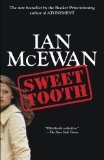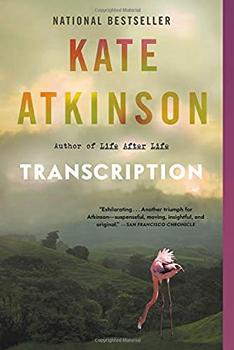Summary | Excerpt | Reading Guide | Reviews | Beyond the book | Read-Alikes | Genres & Themes | Author Bio

A Novel
by Ian McEwanSweet Tooth is set in the early 1970s during the Cold War; its primary concern, however, is not the war of passive aggression characterized by nuclear weapon stockpiling and brinksmanship that made most of the headlines we may remember today. Instead, it focuses on what one character calls "the softest, sweetest part of the Cold War, the only truly interesting part, the war of ideas."
Specifically, it focuses on the short but eventful career of Serena Frome, a lovely young Cambridge graduate with a degree in mathematics and a passion for literature who is recruited for Great Britain's MI5 intelligence service shortly after graduation. There, after paying her dues processing paperwork and filing, she is unexpectedly assigned to an undercover mission nicknamed "Sweet Tooth."
Just as the CIA (much to their later embarrassment) used their own funding to underwrite the work of creative artists sympathetic to American interests, the British intelligence agencies sought out and sponsored the work of authors whose writing was critical of communism and supportive of capitalism. Serena's mark is named Thomas Haley, a young Spenser scholar and promising short story writer and journalist, who might have the makings of a novelist if only he had the necessary time and financial resources.
Posing as the representative of an innocuous government foundation, Serena shows up at Haley's office, prepared to make him an offer...but unprepared for just how hard she falls for both the man and his writing. Serena's involvement with Haley, of course, puts her career in jeopardy, but it also causes her to adjust her expectations about fiction, about the writers she idolizes and from where they draw their ideas. Writing is "almost like cooking," Serena reflects. "Instead of heat transforming the ingredients, there's pure invention, the spark, the hidden element."
The responsibilities and methods of the realist fiction writer are primary concerns for Ian McEwan, so perhaps it's not surprising that much of Sweet Tooth can be read as a particularly lively and playful exploration of these preoccupations. It can also be read as an extended experiment in the pleasure - and limitations - of a male author writing at length from a female protagonist's point of view. Without giving too much away, McEwan is playing a bit of a narrative game with the reader by adopting this point of view which, incidentally, is a welcome contrast to the dour tone of his previous novel, Solar.
It's also simultaneously a fictionalized memoir of the literary scene in the 1970s (based quite heavily on McEwan's own experiences as a university student and as a young short story writer; the novel includes cameos by a handful of his friends and mentors) and a breathy piece of escapist spy fiction. McEwan is not John le Carre, however, and so the most intriguing aspects of McEwan's novel are not about espionage per se, but rather about the ways in which writers of realistic fiction, by mining their own lives and the lives of those around them, are, in themselves, the craftiest and most artful spies of all.
![]() This review was originally published in The BookBrowse Review in November 2012, and has been updated for the
July 2013 edition.
Click here to go to this issue.
This review was originally published in The BookBrowse Review in November 2012, and has been updated for the
July 2013 edition.
Click here to go to this issue.

If you liked Sweet Tooth, try these:

by Lea Carpenter
Published 2025
Set in the dark world of international espionage, from London to Mallorca, Croatia, Paris, and Cap Ferret: the gripping and suspenseful story of a young woman who unwittingly becomes a perfect asset in the long overdue finale of a covert special op

by Kate Atkinson
Published 2019
A dramatic story of WWII espionage, betrayal, and loyalty, by the #1 bestselling author of Life After Life.
These are not books, lumps of lifeless paper, but minds alive on the shelves
Click Here to find out who said this, as well as discovering other famous literary quotes!
Your guide toexceptional books
BookBrowse seeks out and recommends the best in contemporary fiction and nonfiction—books that not only engage and entertain but also deepen our understanding of ourselves and the world around us.